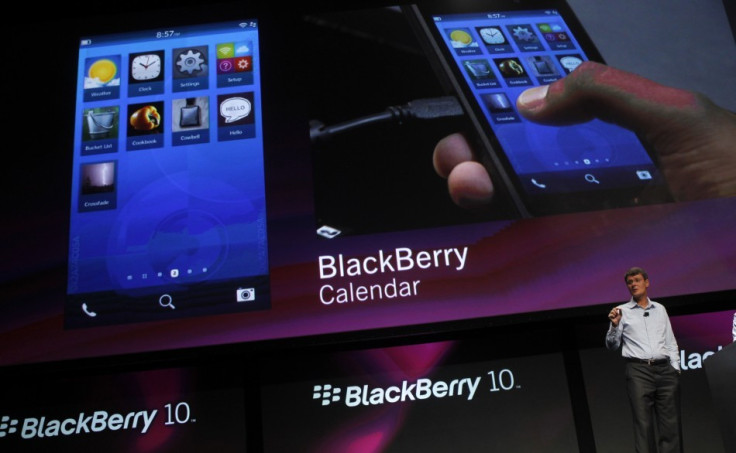BlackBerry 10: Five Reasons Why It Will Fail
Tomorrow will be a huge day for Research in Motion, as the troubled Canadian smartphone maker looks to breathe new life in its brand with the launch of Blackberry 10 and two new devices, the Z10 and X10.

We've already looked at five ways in which BlackBerry 10 could succeed, and now we'll look at how it could fail, killing off not just itself, but the entire BlackBerry and RIM brands as we know them.
1. iOS and Android have 92 percent of the market
Features like this - and the one my BB10-praising alter ego wrote earlier - are always going to contain opinion, but there's no escaping the fact that 92 percent of smartphones shipped today run either iOS or Android, according to Strategy Analytics.
It's a staggering majority that leaves very little room for Windows Phone 8, BlackBerry 10 and a range of upcoming alternative mobile OSes from the likes of Jolla and Ubuntu.
For reference, Blackberry commanded 20 percent of the global smartphone market in the first half of 2009.
If it's a success, Blackberry 10 could hold on to five or six percent, leaving Windows Phone 8 with two or three, but that's a big 'if' and one that has years of customer despair and disappointment stacked against it.
2. Alternative mobile OSs incoming
CES 2013 saw a number of alternative mobile operating systems stake their claim on that remaining eight percent of the market.
Sailfish from Jolla, Ubuntu, Firefox, and Samsung-backed Tizen have all produced attractive mobile OSes that could give BlackBerry a headache as it tries to fight off Windows Phone 8.
If RIM lets BB10 run on handsets from other manufacturers, as Heins suggested last year, its slice of the smartphone operating system market could grow, but with no concrete plans yet announced, this could be some time away.
3. Expected to be expensive
The two BlackBerry 10 smartphones due tomorrow have been some of the worst-kept secrets in tech, and if a recent leak is to be believed, then the touchscreen BlackBerry Z10 will cost £480 with 16GB of storage, SIM-free.
This is just £40 cheaper than the equivalent 16GB iPhone 5 and considerably more expensive than the £120 to £330 range currently occupied by most SIM-free BlackBerrys.
RIM will have to give us a very good reason to not spend the extra £40 and go for either an iPhone 5 or Nokia Lumia 920, or save around £40 and get a Samsung Galaxy S3.
4. Even BBM isn't popular anymore
Being partly blamed for the London riots of 2011 isn't going to do wonders for your public image, and now BBM's user base of 79 million has been eclipsed by the 100 million users of WhatsApp.
Unlike BBM, which can only be used to send free messages between BlackBerry devices, WhatsApp works across multiple platforms so iPhone, Android and Windows Phone 8 users can exchange messages and pictures with each other for free.
BBM used to be an attractive selling point for the consumer market, but with WhatsApp, iMessage and others offering the same service with more users, BBM is far less enticing than it used to be.
5. BlackBerry has lost its dominant business position
Gone are the days when BlackBerry was the only choice for businesses looking to supply employees with a smartphone, as increased security and more compatibility with corporate IT systems has made iOS and Android both safe (ish) and user-friendly alternatives.
RIM has lost numerous corporate and government contracts over the past two years, including the US National Oceanographic and Atmospheric Administration, the US National Transportation and Safety Board and the US Immigration and Customs Enforcement Agency.
In November, RIM even lost some business from the Pentagon, which said that it would start to let some employees use Apple and Android devices, but stressed that it would at least hold on to some BlackBerrys.
Research in Motion isn't dead, and at its current level it is unlikely to pass away suddenly, but the glory days of the mid to late 2000s are gone and unlikely to return.
Licensing BB10 and future software to other hardware manufacturers could be a solution, as could offering up BlackBerry hardware to run Android, but right now - and no matter how good BB10 turns out to be - this isn't going to be the heroic turnaround it could have been if it started two years ago.
© Copyright IBTimes 2024. All rights reserved.






